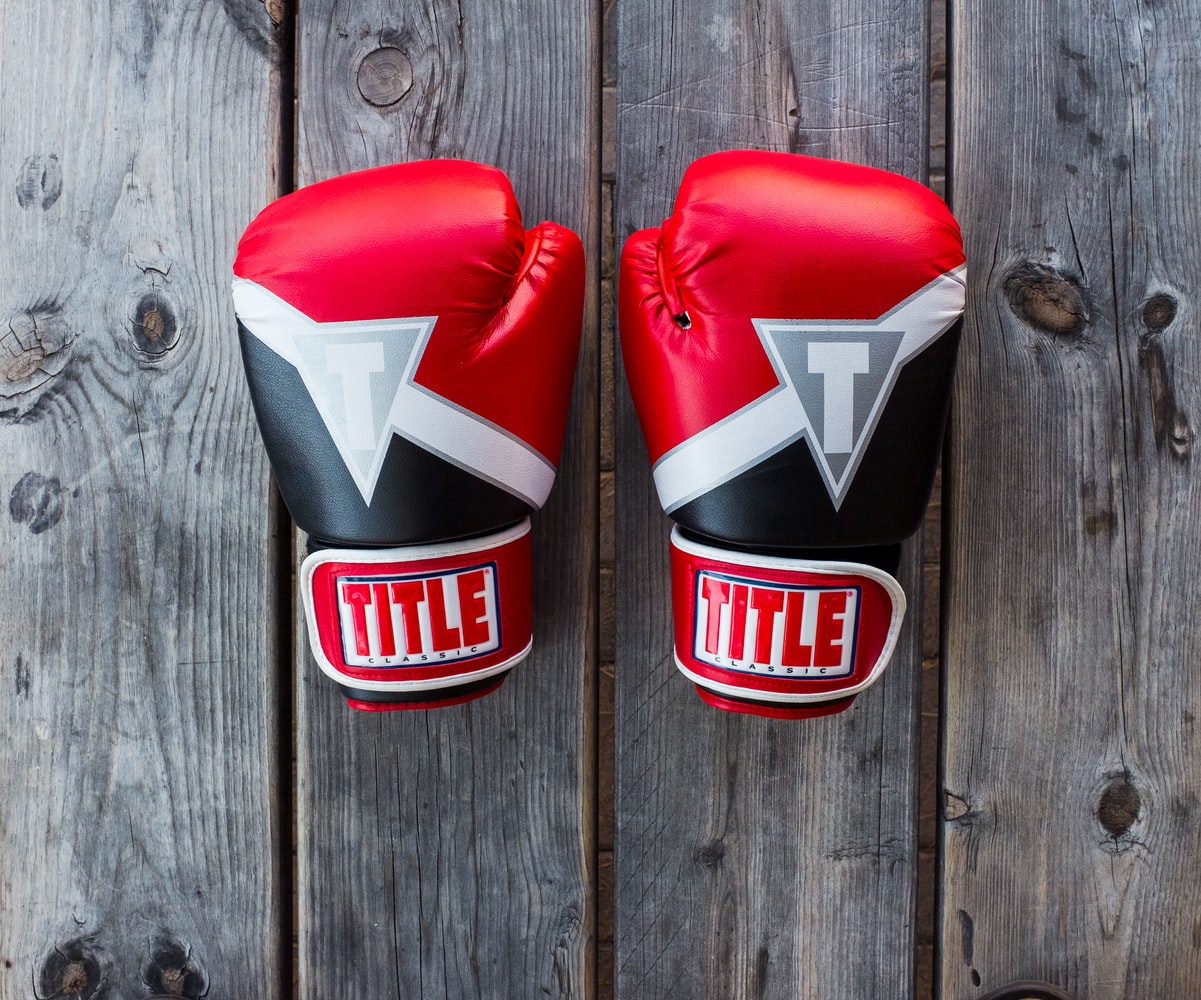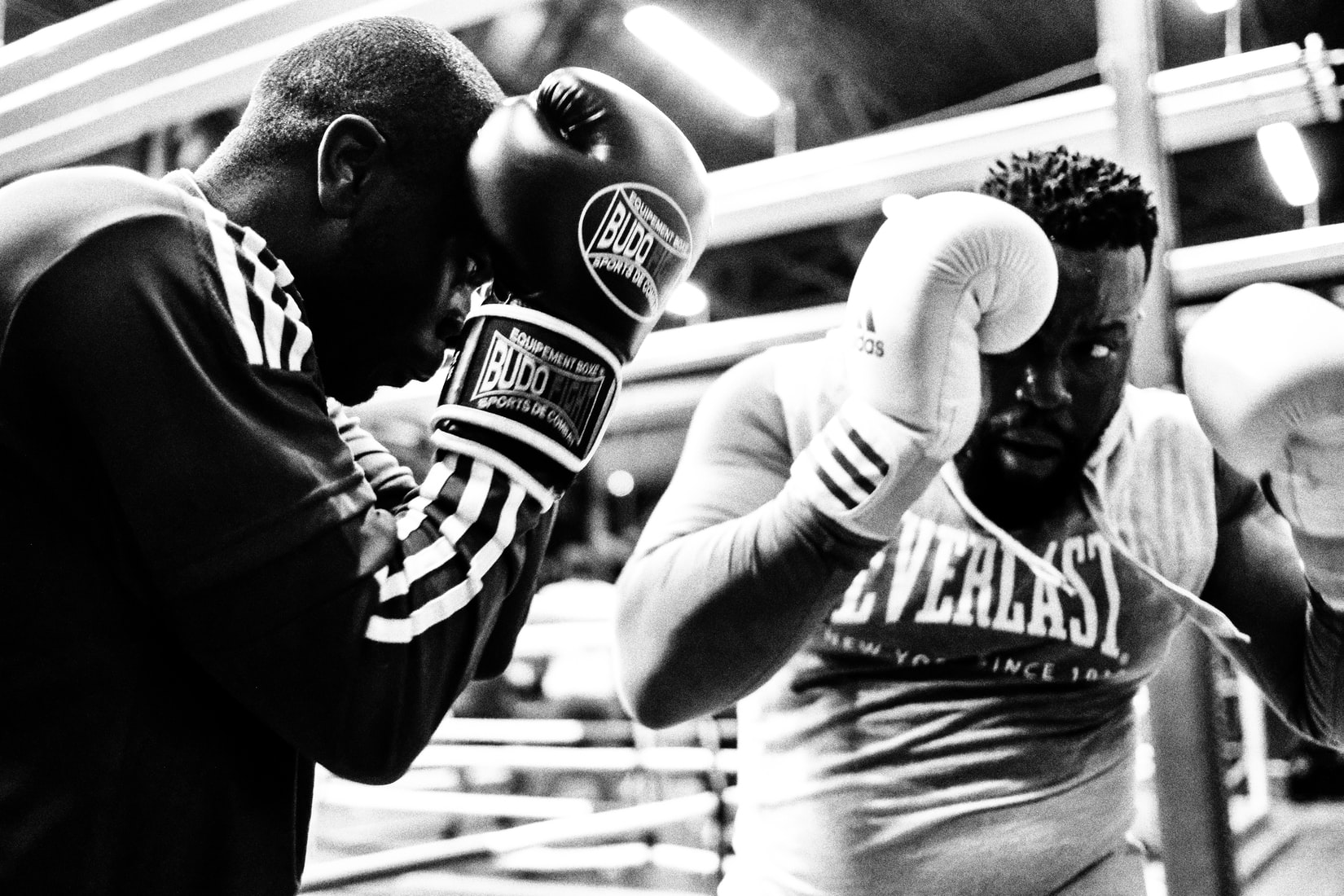When beginners get into boxing, often one of the first bits of gear they look to buy are a set of boxing gloves. And very often they get quite confused when seeing that you can’t just go out and buy a set of boxing gloves; you need to pick a specific weight of glove. So why do you need to do this; surely a glove is a glove, right? Well, not necessarily so. In this article we’re going to take a quick look at the different types of boxing glove you can get and why boxing glove weight matters for the type of training you’ll be doing.

We’ll also be going through which weight boxing glove you should get depending on your weight, gender, height or experience level. When choosing the ideal glove you need to be aware of all of these things - so let’s get into it. What weight boxing gloves should you get?
Why boxing gloves are different weights
Firstly, you may be wondering why boxing gloves even come in a variety of different weights. The reason is that boxing is not just a sport that uses gloves for competition. You’re just as likely to be using your gloves for training as you are for fighting. This presents a bit of a problem.
If you’re a novice boxer, you get into the ring to spar with someone and you’re wearing competition-weight gloves (usually 8oz or 10oz) you’re liable to injure the other fighter. This is because with such light weight on your hands and such little padding, you’re able to punch faster and harder. This is why 16oz and above gloves exist - you won’t see people fighting in them in competition, but people spar in them because they’re padded so they don’t hit so hard, and they’re heavy so it’s difficult to throw punches as fast.

On the contrary, sometimes you’re training for speed and agility. As a result, a set of 16oz pillows on your hands isn’t going to do you any good because they’re going to slow you down. Training with 16oz gloves, and then getting into the ring with 10oz gloves means your reflexes are going to be slower than they otherwise would have been. If you’re training the double end bag or the heavy bag, you’ll want at least a 12oz set of gloves, if not a 10oz set, as they’ll allow you to punch harder and quicker, working your power, speed and agility.
It’s worth saying that if you’re just starting out boxing I’d recommend you get the heaviest gloves you can, even if you’re only intending to do bag work. The reason for this is that if you’re not used to punching something you may do yourself an injury with 8oz or 10oz bag gloves, and it’s better to start at a heavier set and work your way down as opposed to starting with a very light set of gloves and getting injured.
How is boxing glove weight measured?
What’s interesting is that we’ve established that boxing gloves are measured by weight, which is different to a lot of other gear - most gear is measured in size (S, M, L, XL and so on.) However, one of the things you may be curious about is how boxing glove weight is measured.
Boxing glove weight is measured in ounces - it’s what the “oz” means after the number. This means that each separate glove (not the two gloves combined) weighs a certain number of ounces. So, if you put on a 12oz pair of gloves, each glove should weigh (roughly) 12oz, which is about 0.75lbs.
What this effectively means is that the larger this number, the heavier the glove and the more padding on your knuckles. This is why we recommend for beginners, they stick with the heaviest gloves possible - because you’re less likely to hurt yourself due to the increased padding. When you’ve got a bit more experience, and you want to train for speed, you can drop down to a smaller set of gloves when working the heavy bag, which should allow you to punch faster at the expense of a little padding.

It’s also why they say you should pick the heaviest gloves possible (usually 14oz or 16oz gloves) for sparring; because the more padding on your gloves, the less likely you are to hurt your sparring partner. If you try sparring in a set of 8oz gloves, you’re much more likely to knock someone out than if you’re wearing a set of 14oz gloves.
It’s also worth mentioning that as gloves get heavier, they also tend to get bigger, which is why if you’ve got bigger hands, you might want to pick a 16oz set or more. Hand sizes in boxing gloves are usually pretty standard across the board, but you’ll often find that those with smaller hands find heavier gloves a lot roomier, so they compensate for this with hand wrapping. If you’ve got really big hands, you might even have to go for a 18oz plus pair of gloves.
Different boxing glove weights and what they’re for
Now we’ve spoken about a few things; why boxing gloves are measured by weight, and why boxing gloves are manufactured in different weights. We’ve spoken briefly about the below as well, but I just wanted to break down each individual category of weight, and state what and who they’re for so when you come to pick the best boxing gloves for you, you can go in fully informed and you won’t waste your money on a set of gloves that are unsuitable.

8oz or below
8oz gloves aren’t too common any more, however they are still available from a lot of the big manufacturers. 8oz gloves are for bag work and mitt work. 8oz gloves are sometimes used in professional competition, but you should NOT be sparring in them for fear of injuring yourself or your sparring partner.
8oz gloves are ideal for lighter men in the bantamweight to lightweight range (roughly 115lbs to 135lbs) as a glove any heavier might slow you down when training on the bag. Of course - as we always say, sparring means a 16oz glove or more, but someone who trains the bag on 8oz gloves might prefer a 14oz glove for sparring. Any heavier on the bag, however, and you’ll struggle to practice your speed.
8oz gloves are also good for women, as well as kids and junior tournaments. However, for extra petite women (below around 100lbs) you might want to look at an even lighter set of gloves (usually 6oz), for the same reasons we’ve already stated - you’re likely to get more speed and more power, and you might find the 8oz gloves to have too much weight.
If this applies to you, you’ll definitely want to try a set of gloves out first - and I’d encourage you to take advantage of any retailer’s return policy in this regard, as it’s hugely important to make sure the gloves you pick are the right ones for you.

10 - 12 oz
A set of 10oz gloves are probably the most common choice among most men and larger women for bag and mitt work. These again aren’t a set of gloves you’ll be sparring with, but they are a common glove weight for professional competition as well as the majority of novice and amateur boxers for their training regimen.
For men, you’ll want to be between lightweight and light heavyweight (roughly 135lbs to 170lbs) for these gloves to be the perfect weight for heavy bag training, double end bag training and pad work. If you’re any heavier you might want to consider a set of 12oz gloves. For women you’ll probably find these a bit too heavy unless you’re above around 130lbs - at which point you might feel pretty comfortable in a set of 10oz or 12oz gloves.
It’s worth saying again that at this level, these are not sparring gloves, and you should not be sparring in gloves as light as these.

14 - 16 oz
This is where we move away from specific weights of gloves depending on how much you weigh - because for me, 14oz to 16oz gloves serve only one of two purposes. They’re either bag and training gloves for absolute beginners, or they’re sparring gloves for everyone. It doesn’t matter whether you’re 90lbs or 175lbs, whether you’ve got experience in boxing or not - everyone should be sparring in gloves no lighter than 14oz.
Of course, common sense suggests that the lighter you are, the more likely a 14oz set is going to be suitable for you, and the heavier you are the more likely a 16oz set or greater is going to be suitable for you. Again I’d urge you to try these gloves wherever and whenever possible, as that’s going to give you the best feel for the type and weight of gloves that you’re going to be comfortable with.
The only situation you won’t be sparring in gloves at this level is when you’re a lot heavier (think 200lbs plus) and you’ll need gloves heavier than 16oz, which we’ll touch on in the next section.

18 - 20 oz
This is about as heavy as gloves get (although there are custom gloves that you can get that are even heavier than this) and these are really designed for those who have either exceptionally large hands, that when wrapped won’t fit into smaller gloves, or those who are very heavy (200lbs or more) and need more padding on their knuckles in sparring.
In my view there’s no real need for gloves as heavy as this in any other situation - other than that if you’re a complete novice and you’ve got big hands, you might pick these gloves for general training. I wouldn’t recommend it though as you’re going to struggle with your speed in a set of gloves this heavy.
So which boxing glove weight should you get?
So hopefully this has helped you out a bit in terms of which gloves to choose. I can’t say this often enough - in this sport, safety is paramount, and the last thing you want to do is injure either yourself or someone else. So where you can, try on gloves before buying and see what they’re like. If you can even get a gym session in with them on, so much the better.
It’s also worth testing the water with cheaper gloves, before investing in a good pair. For example I wouldn’t drop $300 on a set of Winning or Cleto Reyes gloves without knowing the weight I needed first - and I’d test that out with a cheap pair of Everlast or Lonsdale gloves if I needed to.
If you’re looking for a beginner set of gloves to work the heavy bag, don’t forget to check out my recent reviews on the best boxing gloves for heavy bag work.
Check out some of our latest articles!


0 comments